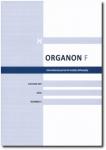Knowing Subject and External Object in Language and Linguistic Analysis
Knowing Subject and External Object in Language and Linguistic Analysis
Author(s): Paul RastallSubject(s): Epistemology, Philosophy of Language
Published by: SAV - Slovenská akadémia vied - Filozofický ústav SAV
Keywords: Coherence; correspondence; external object; knowing subject; objectivity;
Summary/Abstract: The claim of linguistics to be a ‘science’ is connected to its ‘objectivity’. The same is true of the philosophy of language. This implies a clear distinction between the language analyst as a ‘knowing subject’ and linguistic phenomena as an ‘external object’. The picture of everyday verbal communication contains the idea of speakers as ‘knowing subjects’ of verbal signals as ‘external objects’. Also, the correspondence theory of truth for natural languages presupposes that the language analyst is a ‘knowing subject’ who can assess the truth of objectified statements in relation to the factual world. The paper questions those ideas, and suggests that the objective orientation in linguistic analysis is a convenient fiction. It is suggested that analysts and speakers are components in a complex communicational totality, and can never be external objective observers of the verbal communication process. Consequently, a coherence theory of truth is more appropriate for language analysis of all types and for our understanding of speaker behaviour.
Journal: Organon F
- Issue Year: 25/2018
- Issue No: 3
- Page Range: 339-367
- Page Count: 29
- Language: English

